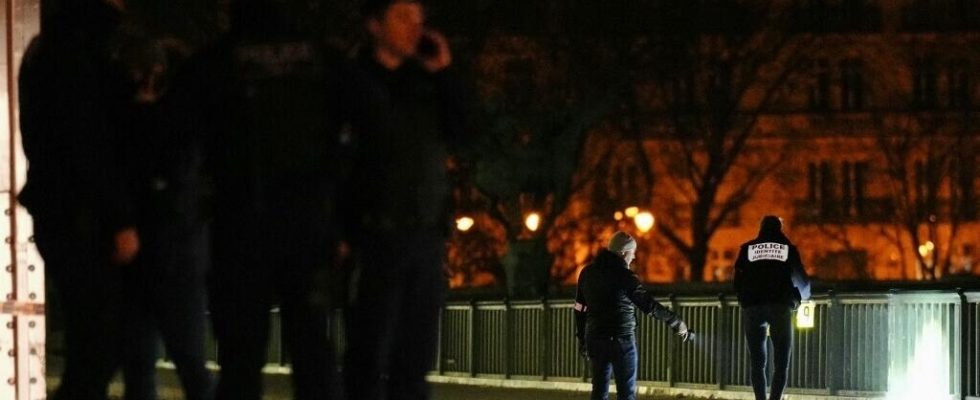This Monday, December 4, Gérald Darmanin on BFM TV affirmed that there had been a failure in the psychiatric follow-up of the man who killed one person and injured two others on Saturday, December 2 not far from the Eiffel Tower in Paris. The author of the attack, Armand Rajabpour-Miyandoab, was subject to a treatment order, but which ended in April 2023. What does this measure provide for?
3 mins
The therapeutic injunction appeared in French law in 1970 as part of the fight against drug addiction and the repression of drug trafficking. The idea is to no longer consider resellers and consumers as delinquents, but as sick people. In other words, they are offered an alternative to legal proceedings which could lead to prison: the therapeutic injunction.
The offender is obliged to seek treatment. This sometimes begins with hospitalization since initially, it is people who consume too many drugs or too much alcohol who are affected. Subsequently, the law extended the therapeutic injunction to other behaviors: sexual crimes against a minor, family violence, aggravated violence, destruction or damage, even arms trafficking.
A binding legal measure
Concretely, how does this happen? The care injunction is necessarily issued by a judge. A coordinating doctor is then appointed. He is chosen from a list of specially trained caregivers. He is also called relay doctor. He is responsible for ensuring liaison between the doctor or psychologist responsible for treatment and the sentence enforcement judge.
Furthermore, the treating doctor or psychologist is responsible for administering the treatment that has been prescribed. In certain cases, there may be additional measures: not going to this or that place for example.
Read alsoAttack in Paris: the attacker had pledged allegiance to the Islamic State in a video
Concerning the attack of this Saturday, December 2, the anti-terrorism prosecutor Jean-François Ricard indicated: Armand Rajabpour Miyandoab had served a prison sentence of 4 years for a planned violent action in 2016. He was then subjected to a care order involving tighter psychiatric monitoring until the end of the probation in April 2023. This new psychiatric assessment was motivated by the evolution of his condition during his detention.
Gérald Darmanin points out the responsibility of psychiatrists
Last October, the suspect’s mother reported to the police that her son’s behavior was worrying, that he was withdrawing into himself. The police then tried to have him examined by a doctor with a view to hospitalization. But there, the doctor did not notice any disorder, nothing that justifies internment. Technically, it was possible to consider hospitalization at the request of a third party. There, it was the mother who should have made the request. In fact, a few days after her report, she assured that her son was doing better
Gérald Darmanin, Minister of the Interior, still spoke of failure in psychiatric follow-up. By pointing out the responsibility of psychiatrists, he indicates in a way that it is not the fault of the police. He defends his troops, who have done their best under his terms. The doctors decide on the condition of the patient they have in front of them. In this case, he did not have any particular problems at the time of the assessment.
As government spokesperson Olivier Véran said, the suspect’s journey is consistent with the state of the law. We cannot preventively intern someone regardless of their past. This is undoubtedly the reason why the Minister of the Interior reiterated this Monday, December 4, his desire to create an administrative injunction which would allow a prefect to order medical monitoring.
Read alsoFrance: knife attack in Paris, assailant arrested, anti-terrorism prosecution seized
